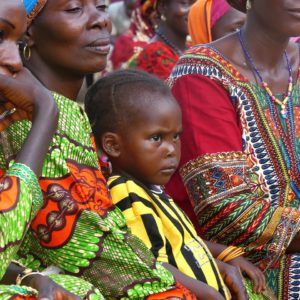PORTLAND, OR – Loom International is a relatively young, faith-based NGO led by a core group of Christians with expertise in sustainable change.
 Loom’s operational model, similar in many ways to that of some highly successful for-profit institutions, projects both short and long-term outcomes based on continual improvement. These principles are applied on the ground to stabilize and empower African communities and guide them to prosperity.
Loom’s operational model, similar in many ways to that of some highly successful for-profit institutions, projects both short and long-term outcomes based on continual improvement. These principles are applied on the ground to stabilize and empower African communities and guide them to prosperity.
Breaking the Cycle of Poverty
Loom’s 2019-2020 Annual Report poses at least one comment and one question worthy of our consideration.
“After decades of aid all over the globe, the overwhelming reality is that it hasn’t worked,” and,
“What if the means to ending poverty were already available in vulnerable communities?”
That “means” actually is already available in vulnerable communities. That “means” is the people. They often want a better life. They just don’t know how to get it – or sustain it.
Before Loom enters a vulnerable community, they identify influencers within the community who have the capability to generate change. The key to effective change is providing resources and networks that can be utilized to introduce the potential for dramatic changes and equip the community to implement those changes on a continuing pathway to prosperity.
Beginning the Path to Prosperity
Loom begins with listening to the influencers, whom they call “Local Experts.” By doing so, the Loom team understands the community’s perspective on what it needs to improve its status both now and in the future. This phase is called Regeneration.
From that point, Loom helps the community to Rethink how to build its capacities and connections.
“The ReThink training provides a Biblical basis for thinking about life, social issues, and strategies for influencing society and addressing issues of injustice.”
Buying Into the Process of Improvement
The Loom team introduces the need for and the resources necessary to effect sustainable change for the particular community in which they serve, including
- Acquisition of knowledge.
- Multiplying participation and adapting training to the local context.
- Building social and peer connections.
- Demonstrating how to see the big picture for the community, then focusing it, aligning resources, and inspiring action.
- Engaging community members to become aware of their cultural and community assumptions that may have hindered their progress in the past.
From these five inputs, Loom expects to see at least four short-term outcomes.
- Newly-acquired skills are serving the community.
- Improved social relationships and mutual learning have taken root.
- Gained awareness of thinking patterns (good and bad) and sensitivity to their neighbors’ perspectives.
- Visible evidence of community commitment to continuous learning.
By staying the course through Renewal training and Reconsidering the short-term results, the two expected long-term outcomes should be
- The impact on the community as it becomes accustomed to critical thinking.
- A sustainable local community focused on implementing God’s intentions for the most vulnerable within the community.
The statistical impact of Loom’s approach is admirable (and available on the Loom website). Perhaps, however, the best way to measure long-term impact is summarized by noting that
“Some numbers we can easily track, but it is not always easy to count the impact in people’s lives when they receive information and apply it to their neighbors and community.
“When one teacher understands how the brain of a vulnerable child reacts to threats or fear, the children in her classroom will benefit for the rest of their lives. When one woman is able to provide job training for young mothers in her community, those families are forever changed.”
Lives forever changed is, after all, the goal.
Read more news on Faith Based Organizations and World Missions.
Sources:
- Loom International, Official Website
- Loom International, ECFA




